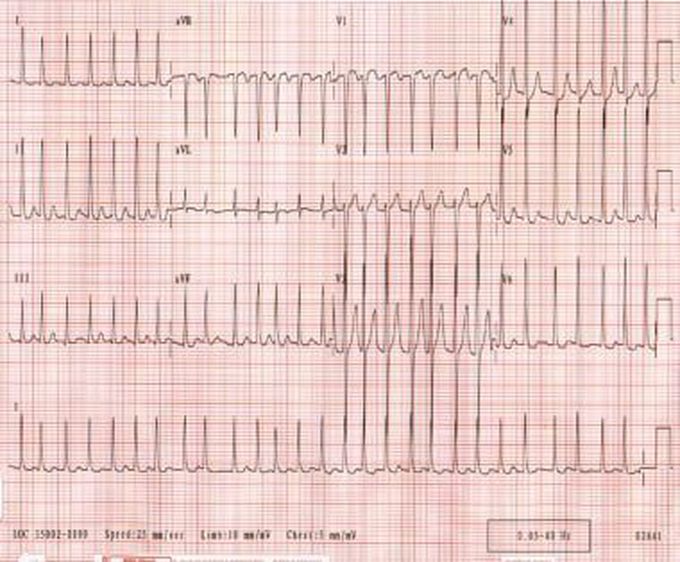


Atrial fibrillation
Atrial fibrillation is a heart condition that causes an irregular and often abnormally fast heart rate. A normal heart rate should be regular and between 60 and 100 beats a minute when you're resting. You can measure your heart rate by checking your pulse in your wrist or neck. Atrial fibrillation (AF) has strong associations with other cardiovascular diseases, such as heart failure, coronary artery disease (CAD), valvular heart disease, diabetes mellitus, and hypertension. It is characterized by an irregular and often rapid heartbeat (see the first image below). The exact mechanisms by which cardiovascular risk factors predispose to AF are not understood fully but are under intense investigation. Catecholamine excess, hemodynamic stress, atrial ischemia, atrial inflammation, metabolic stress, and neurohumoral cascade activation are all purported to promote AF.

